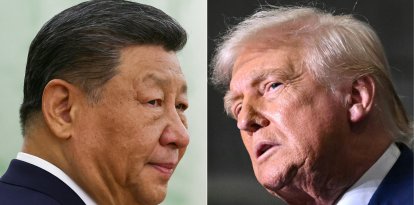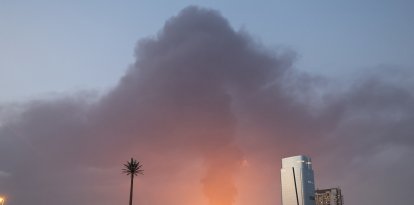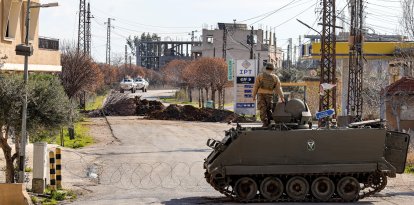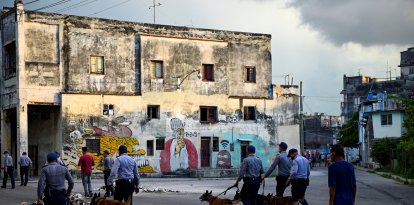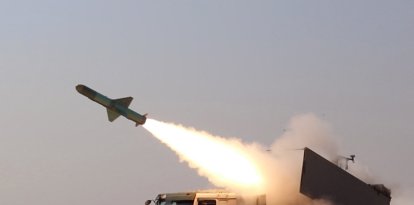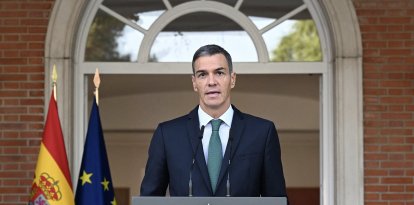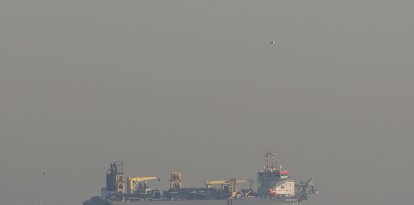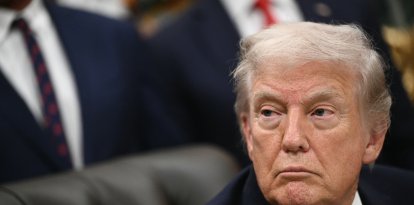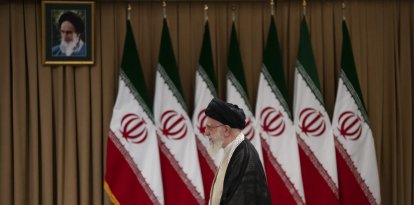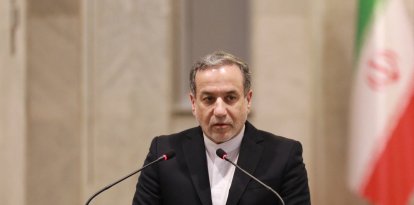G20 Summit: Everything you should know about the first day of the summit
This is how the day of world leaders unfolded: from press evictions to the first meeting between Biden and Sheinbaum.
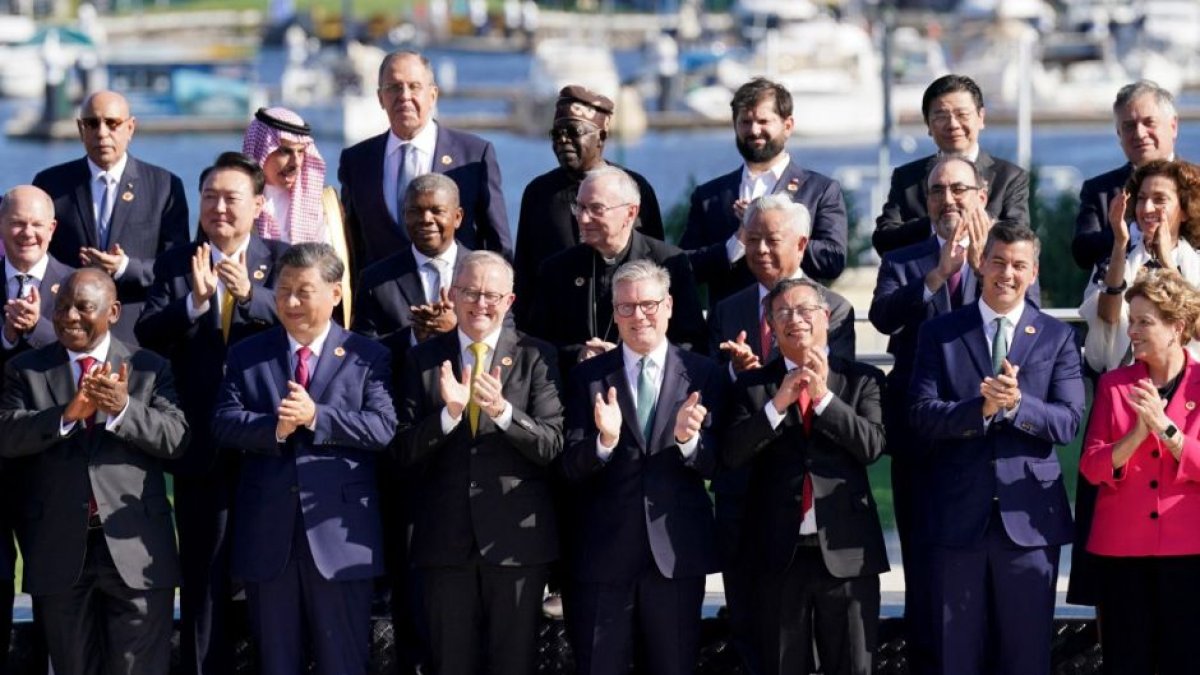
World leaders during a group photo at the end of the first session of the G20 Leaders' Meeting in Rio de Janeiro, Brazil.
The heads of state and G20 governments kicked off a summit in Rio de Janeiro, Brazil, on Monday marked by international tensions, with the wars in Ukraine and Gaza dominating the landscape and anticipation ahead of Donald Trump's return to the U.S. presidency.
Lula da Silva calls for global governance reform
Brazilian President Luiz Inácio Lula da Silva opened the session and, during his speeches, criticized the U.N. Security Council's inaction and declared the launch of the Global Alliance against Hunger and Poverty as the main legacy of the Brazilian presidency of the G20.
In addition, he proposed a controversial leftist measure: a global tax on super billionaires, which, according to Lula, would be fundamental to finance the reduction of inequalities and promote world peace. However, the United States, through Treasury Secretary Janet Yellen, advanced that it is adamantly opposed to such a tax, insisting that each country should be in charge of having a "fair and progressive" tax system rather than imposing a global levy.
Biden and Sheinbaum discuss immigration crisis and border security
U.S. President Joe Biden held his first meeting with Mexican President Claudia Sheinbaum as part of the summit. The meeting focused on strengthening the bilateral relationship, particularly emphasizing the migration crisis and security on the shared border. Both parties reported discussing the need for collaboration to address their economic and humanitarian challenges.
Starmer confronts Xi Jinping over human rights
British Prime Minister Keir Starmer held a tense meeting with Chinese President Xi Jinping in which he expressed concern over Jimmy Lai's situation. Lai is a Hong Kong pro-democracy activist detained under Beijing's controversial national security law. Starmer cited Lai's deteriorating health and pleaded for a just resolution, emphasizing the UK's commitment to human rights.
Starmer said that while they seek to maintain stable and respectful relations, being forthright about their differences is crucial, particularly on issues such as Hong Kong and human rights. The meeting was interrupted when the Chinese delegation ordered the journalists' expulsion, highlighting the tension in the meeting.
Argentina joins so-called Alliance Against Hunger and Poverty
An additional issue that stood out during the summit was Argentina's accession to the Global Alliance Against Hunger and Poverty, an initiative launched by Lula as part of his agenda to combat economic inequalities in the world. Under the leadership of ultra-liberal President Javier Milei, who was initially reluctant to join the proposal, Argentina finally backed the initiative. However, the Argentine government specified that its adherence was under a "basket of policies" approach that does not imply the collective approval of specific policy instruments or programs.
Likewise, in a clear distancing from the ideological policies of the Brazilian president, Milei's government argued that "socialist policies violate the rights of individuals and, by suffocating the economies of the nation states that implement them, continue to cause unsustainable underdevelopment that prevents any viable fight against hunger and poverty."
Climate change on the agenda
Climate change was another central issue at the summit, especially for left-wing leaders. In his speech, the Brazilian president was among the first to call on developed countries to assume greater responsibility for financing the energy transition. Lula proposed an annual investment of one billion dollars in projects related to constructing solar infrastructure, agricultural irrigation and protecting cities against flooding.
US pledges US$4 billion to the World Bank
Joe Biden, reported a $4 billion commitment to support the World Bank's International Development Association (IDA) fund. IDA is the financing arm aimed at lower-income countries, with the goal of addressing extreme poverty and supporting economic development.
The disbursement is planned over a three-year period and is part of the program's replenishment process.
Impact of AI
In the final declaration of the G20 summit held in Brazil, world leaders issued a warning about the risks associated with the use of artificial intelligence (AI), noting its significant impact on the spread of disinformation and hate speech. The leaders noted that the accelerated advancement of these technologies has drastically changed the way information and content is disseminated online.
Against this backdrop, the G20 leaders called on technology companies and digital platforms to act with greater transparency and take responsibility for the management of their content.
President of Paraguay hospitalized during summit
The president of Paraguay, Santiago Peña, was admitted to a hospital in Rio de Janeiro after suffering a decompensation while participating in the G20 summit.
According to a press release from the Samaritano Hospital in Botafogo, Peña, 46 years old, presented malaise during Monday afternoon and was taken for medical examinations. The authorities of the health center confirmed that the president is stable and in good general condition.
Although Paraguay is not a member of the G20, Peña attended the summit as a guest of the Brazilian president.













